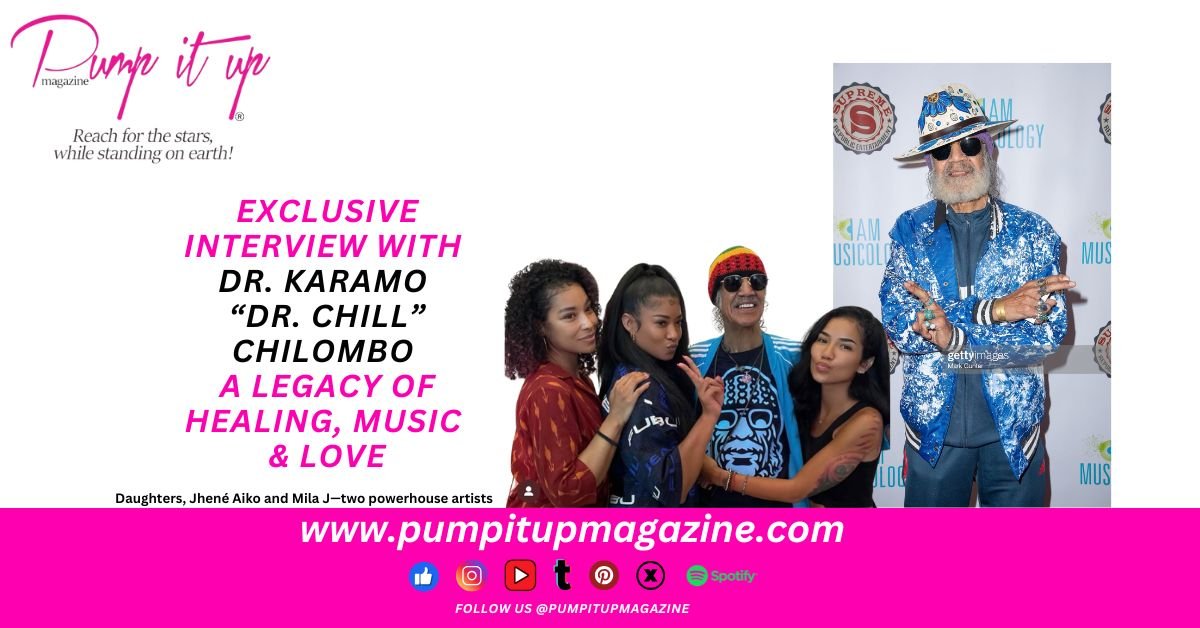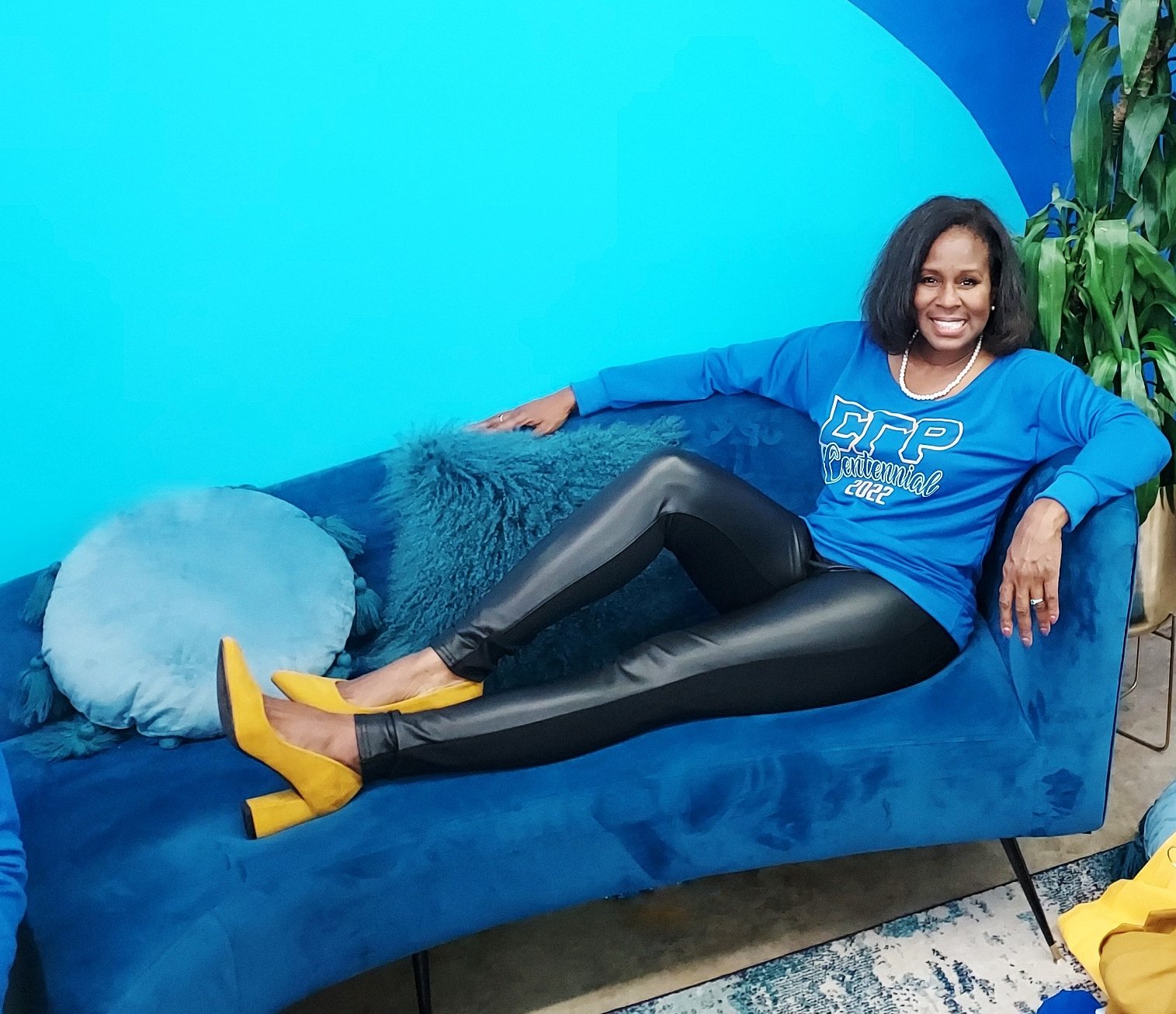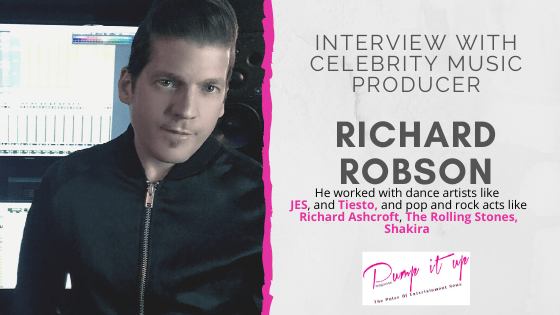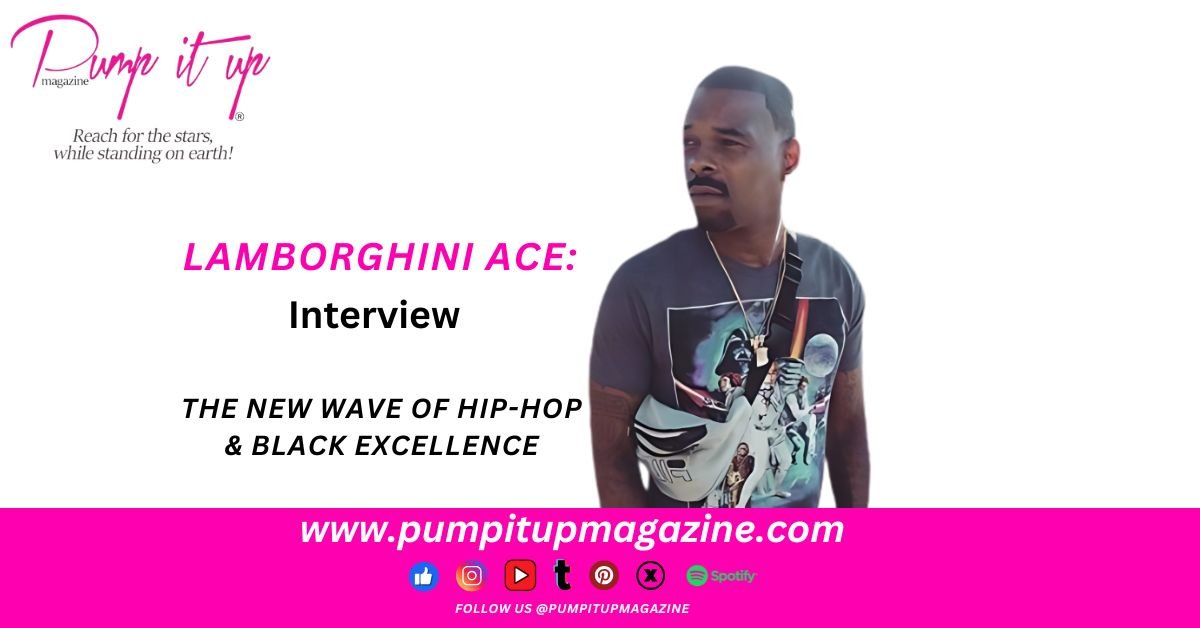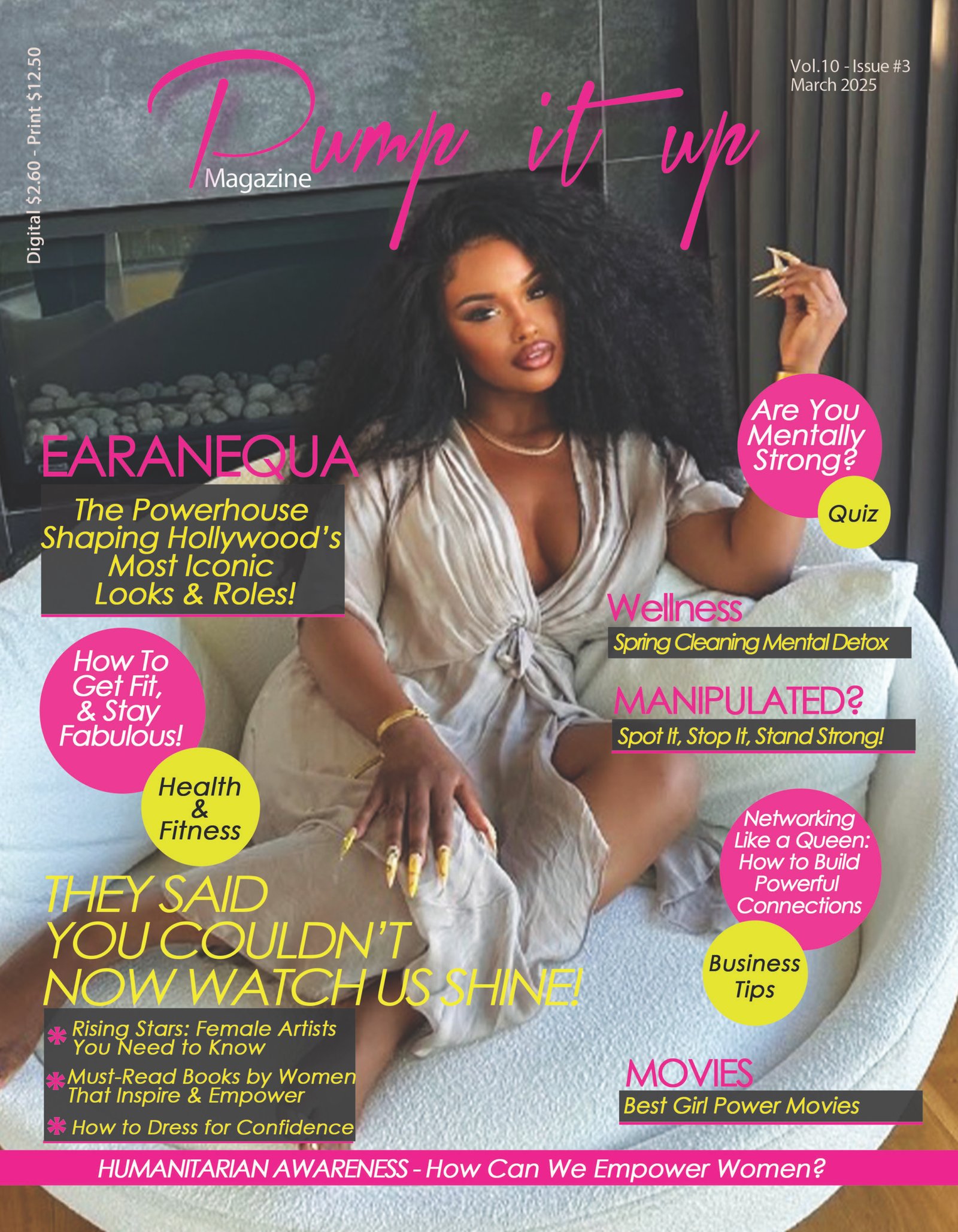Meet a talented musician and KPIU radio host who has dedicated his life to the world of jazz. With decades of experience as a percussionist, composer, and band leader, he has a wealth of knowledge and stories to share about his career in the music industry. As a radio hos for KPIU RADIO – Pump it up magazine Official Radio Station, he brings the latest and greatest in smooth jazz to his listeners, while also providing a platform for up-and-coming artists to showcase their talents. In this interview, we delve into his journey as a jazz musician, the challenges he’s faced along the way, and his thoughts on Jazz Month and the enduring appeal of jazz music.
What inspired you to become a jazz musician and radio host, and how did you first get started in the industry?
My father was a drummer, singer and tap dancer who started me out on drums when I was six. I had good timing for a kid, so he would take me to gigs and let me sit in. As I grew older, I was a regular at dances hosted by Jerry Blavat, the “Geator with the Heater, the Boss with the Hot Sauce,” who sad to say, recently passed away at 82. When I was fifteen, I’d sit for hours in his studio and watch this legendary Hall of Fame DJ do his radio shows. I listened and learned about music and how to put a radio show together. Through my teen years Jerry had a Philly based TV Show (The Discophonic Scene) and I became one of the main dancers on the show. This is where I realized I would be in entertainment for the rest of my life.
I didn’t get into playing jazz until my mid-twenties, after playing in top 40 bands as I traveled the country. I switched to Latin Percussion (Congas) and studied composition and piano with David Anchor from Julliard and the Circle of Fifths/Fourths with noted jazz bass player Joe Butera. The bottom line here is all my interests in music merged.
Can you tell us more about the kind of music that your band Drivetime creates, and how you go about composing and arranging new pieces?
Writing music came later, in my thirties. I had spent the previous decade playing jazz and working my way through the Great American Song Book and The Real Book with different bands and groups, and being influenced by artists like Herbie Handcock, Chick Correa and Chuck Mangione. Since I’m a percussionist, my approach comes from the bottom up. I create motifs, lay down a groove, then find a chord structure to fit what I’m hearing, and the melody falls into place. Writing for Drivetime is fun: There isn’t a genre we can’t cover. Drivetime is at home in genres from fusion, to funk and Latin jazz. Although we market in Smooth Jazz, I believe we’re more experimentally inclined than most smooth jazz performers, because we write what we want and create a sound unique to Drivetime without being hampered by restrictions set by the industry’s guidelines.
How do you curate your playlist for your jazz radio show on KPIU Radio, and what can listeners expect when they tune in?
In my radio show, I aim to bring my listeners the best of smooth jazz while also providing a platform for emerging artists within the genre. Rather than solely relying on the Smooth Jazz Network’s weekly chart, I also search for new releases and tracks from fresh talent to feature on my show. I’m passionate about promoting diversity and believe in showcasing a range of music for my listeners. Additionally, I’ve had the pleasure of discovering some talented artists through Pump It Up Magazine, which has been an exciting opportunity to bring new and unique music to my audience.
Jazz Month is just around the corner. How do you usually celebrate this special month, and what does it mean to you as a jazz musician and radio host?
Doesn’t mean much to me other than the fact that jazz gets more attention than usual from others. It was established in April of 2001. After twenty-two years, I’m not sure how much of an impact it has had. People who love jazz listen all year round. One highlight that falls in this month is the Berks Jazz Fest. A lot of my friends and associates play there, so I have a chance to celebrate their success, catch up and do interviews with some notables for the radio show.
How do you think Jazz Month helps to promote and celebrate the jazz genre, and what can fans expect from your radio show and band during this month?
People say jazz, but there are so many facets and styles: Bebop, Straight Ahead, Fusion, Latin Jazz. For the radio show it’s mostly Smooth Jazz, but Drivetime, the band, is all over the map. We call it Urban Organic Jazz. I really don’t like being pigeonholed, I mean the whole point of Jazz is to be creative and unique. To be blunt, Smooth Jazz is a solo artist’s playground for sax, trumpet, piano, and guitar. You’ll find most of these artist use backing tracks when they play gigs on the road, Drivetime is not into that, so we can be a hard sell. The radio show I keep consistent, so listeners always get what they tune in for. I always play the hottest artist that are crusin up the charts.
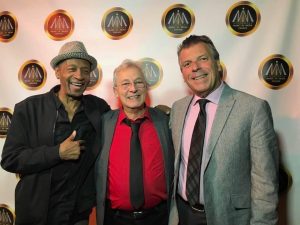
Can you share with us some of your most memorable experiences performing during Jazz Month in the past, and what made those experiences so special to you?
As far as I’m concerned, it’s jazz month every month. But some of the highlights would be playing right smack dab in the middle of Time Square for the 2017 Tony Awards with Justin Guarini & Debora Cox; writing with Bob Baldwin on our first single Gettin’ Witit; and being nominated for the HMMA (Hollywood Music in Media Awards) for our jazz reimagining of California Dreamin.
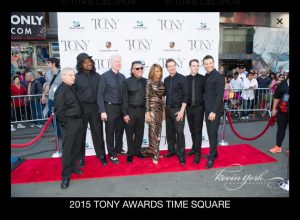
In your opinion, what makes jazz such an important and enduring genre, and why do you think it continues to resonate with audiences around the world?
I think it’s the music of the human condition turned into joy, when you look back to its roots and how jazz came about, steeped in gospel and call-and-response from its Black roots. It tells a personal story that we all can feel the pain, the joy, the sorrow. And the structured/un-structured nature of jazz is the cushion for a soloist to express and go anywhere in the universe, taking the audience right with them. Music, after all, is the universal language.
What are some of the challenges that jazz musicians and radio hosts face today, and how do you navigate those challenges in your career?
I play and write music for fun, and I broadcast to promote the music I love. If you do it with heart and commitment – whether you’re a musician or a radio host – it’s mostly to lift up our listeners and help them minimize their stress levels and give them something to smile about. I learned that from the best of the best, Jerry Blavat. My career in music is dented with failures, personnel changes in the band, canceled gigs (during Covid) and some degree of rejection. The best way to deal with these issues is to just keep moving forward, never let anyone see you sweat. Don’t make music, be music.
What advice would you give to aspiring jazz musicians and radio hosts who are looking to make a name for themselves in the industry, especially during Jazz Month?
Be a believer, you can’t fake feelings. Be real, if you can’t enjoy what you’re doing, find something else that floats your boat. If you’re going to do music, start young, study hard, practice harder and perfect your craft. If you’re going into broadcasting, know the music and artists you’re playing. But most of all, love what you’re doing, and you’ll never work a day in your life. There’s no guidebook for success, it’s a one in a million shot, you just have to be willing to take it.
Finally, what upcoming projects do you have in the works, and what can fans expect from you in the coming months?
Drivetime was affected like everyone else during Covid so for the past few years we’ve had plenty of time to write. Guitarist Gene Terramani, keyboardist Jimmy Dell’Orefice, and I have produced two brand new CDs, a total of 17 original tunes. We’ve already released 3 singles that are getting great airplay, from the first CD Un Domani Migliore (A Better Tomorrow). The second is still nameless, but both are slated for release this summer. We invited award winning Yulia Petrova to play on our next single I Can’t Forget You. and Andrew Neu joins us on a number of tunes on both CDs. Including these great artists is very exciting for us.



